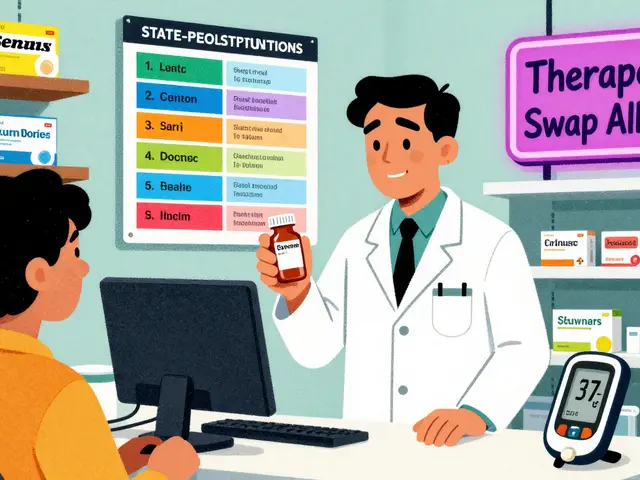Sulfonylurea Replacement: Safer Options for Blood Sugar Control
If sulfonylureas (like glipizide or glyburide) are causing low blood sugar, weight gain, or you're worried about long-term risks, there are good alternatives. This page walks through practical replacements, how they differ, and what to discuss with your doctor.
Main drug alternatives
Metformin: First-line for type 2 diabetes. It lowers glucose without causing many lows and often helps with weight. It works best when kidneys are okay and can cut heart risk in some people.
GLP-1 receptor agonists (eg, semaglutide, liraglutide): These drugs lower A1c well, usually cause weight loss, and have low hypoglycemia risk on their own. They are injections or newer oral forms. They can be more costly but help people who need weight and heart benefits.
SGLT2 inhibitors (eg, empagliflozin, dapagliflozin): These lower blood sugar by making the kidneys remove glucose. They also help heart and kidney health in many patients and don't usually cause low blood sugar alone. Watch for genital infections and dehydration.
DPP-4 inhibitors (eg, sitagliptin): Mild glucose lowering, weight neutral, and very low hypoglycemia risk. They are easy to add if you need modest A1c drop and want few side effects.
Meglitinides (eg, repaglinide): Work like sulfonylureas but shorter acting. They fit people with irregular meals since they work at mealtime. They still can cause lows, but risk is less if meals are skipped carefully.
Insulin: When A1c is high or other drugs don't work, insulin is the most powerful option. Modern basal insulins cause fewer highs and lows than older types. Your provider can tailor doses and teach you injections and monitoring.
How to choose what to replace it with
Match the drug to your goals: weight loss? consider GLP-1. Heart or kidney disease? think SGLT2 or certain GLP-1s. Need inexpensive and proven? metformin is the usual start. Afraid of injections? DPP-4 or SGLT2 are pills.
Check kidney and liver tests before switching. Some drugs need dose changes or are not recommended at low kidney function. Think about side effects: GI upset with GLP-1, urinary infections with SGLT2, diarrhea with metformin.
Cost and coverage matter. GLP-1s and SGLT2s can be expensive; ask about patient assistance or older generics. Ask your clinic or pharmacist for pricing and pill options.
When you switch, monitor blood sugar more often for a few weeks. Ask your doctor about lowering doses if you were having lows on sulfonylureas. Bring a log of readings and any symptoms.
Finally, lifestyle still matters. Diet changes, consistent meals, weight loss, and regular activity often let you use lower drug doses or avoid insulin longer. Talk candidly with your clinician about what you prefer—less injections, fewer lows, or lower cost—and make a plan together.
Pregnancy, breastfeeding, and certain heart or liver conditions change choices. Women planning pregnancy should discuss alternatives since some drugs are unsafe. Your target A1c depends on age and health—ask your provider what goal fits you. Make any changes only with medical guidance and a clear follow-up plan.
Get support early.

- May 24, 2025
- Posted by Cillian Osterfield
When to Replace Glipizide: Safe Alternatives, Patient Checklist, and Clinical Thresholds
Tired of the same old warnings around sulfonylureas but not sure when to actually switch away from Glipizide? Here’s a real-world guide on spotting the clinical red flags, practical patient checklists, and exactly when to make the move. We’ll break down clear situations, show real stats, and point to the best evidence-backed options—all in plain language you can use in your medical practice or daily life.
Categories
- Health and Wellness (72)
- Medications (69)
- Health and Medicine (28)
- Pharmacy Services (12)
- Mental Health (9)
- Health and Career (2)
- Medical Research (2)
- Business and Finance (2)
- Health Information (2)
Latest Posts
©2026 heydoctor.su. All rights reserved





